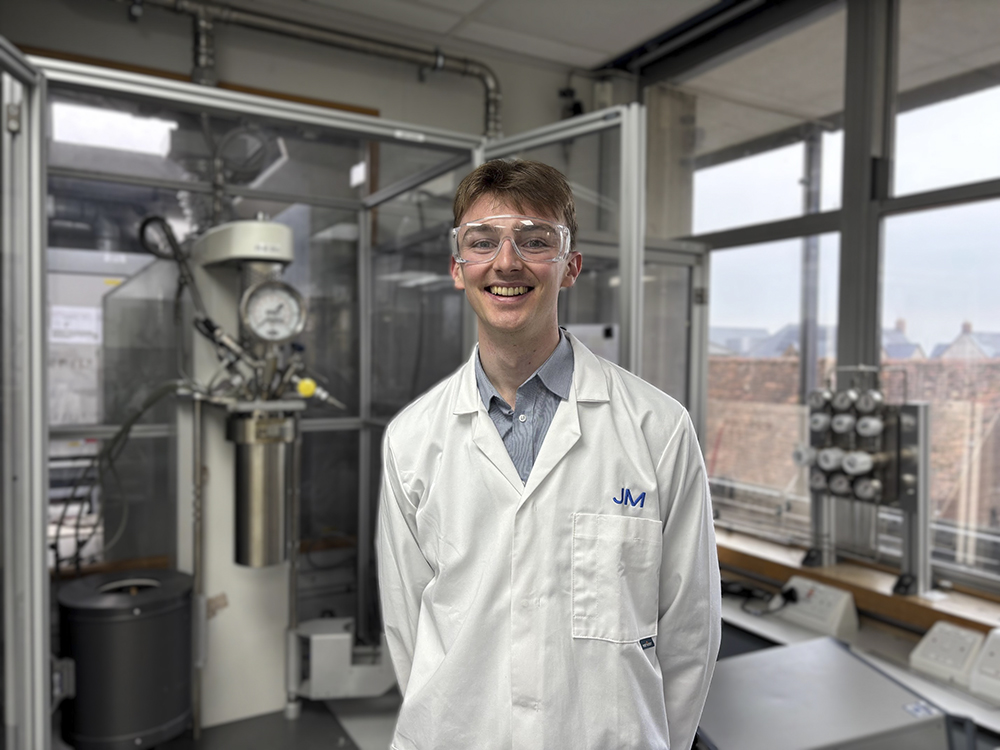Alumni
From Magdalene to Molecules
Delivery over depth. This is one view of industrial science. It is the view that scientific curiosity is always discarded in favour of the pressing need for product delivery and wider commercial and societal impact.
Yes, this is certainly true to some extent. Without customers and a sensible balance sheet, there cannot be long-lasting research and development. Yet, there can be a happy medium. Since leaving Magdalene in 2021, my experience as a Research Scientist at Johnson Matthey has shown me that there remains ample opportunity for exceptional science and tangible impact outside of academia.

In my view, the recipe for exceptional impact combines the relentless pursuit of knowledge (commonly found in a university environment) with the ability to rapidly develop and scale-up breakthroughs (commonly found in an industrial environment). The Royal Commission for the Exhibition of 1851’s Industrial Fellowship, which I was incredibly grateful to have recently been awarded, epitomises this. This prestigious award supports Fellows in their ambitions to make an outstanding contribution to industry by providing funding for their work and supporting the dissemination of this work as a PhD degree. The wider programme of Fellowships brings together entrepreneurs, architects, engineers and teachers to cross-pollinate. Because of this, I cannot help but compare to the Magdalene community I enjoyed as an undergraduate and see obvious similarities. I am thankful to have experienced such enriching conversations in the Magdalene formal hall and to have had my thoughts and ideas regularly challenged. It meant that talking about my work during my interview to esteemed Magdalene alumna Dame Sarah Springman and later to Her Royal Highness The Princess Royal at a Fellowship dinner was not as challenging as it could have been!
My research focuses on improving upon and making new materials which enable us to use electricity to split water molecules apart to produce hydrogen. This is called water electrolysis and, if using renewable electricity, is known widely as green hydrogen. Hydrogen is a molecule which will play an important role in global decarbonisation, such as in the transport and chemical industries. Currently, the majority of hydrogen worldwide is produced via environmentally unfriendly routes which rely on fossil fuels without any capture of emissions. These processes therefore release a significant quantity of greenhouse gases into the atmosphere and contribute to global warming and climate change. We must therefore transition towards water electrolysis as our primary means of producing hydrogen in order to preserve our planet. However, without innovation in the materials that we use to split water, we remain subject to the ebb and flow of demand for critical minerals and its ties to geopolitical tensions.
With the beautiful view of the River Cam from Basing House in my first year, the reflective time spent in conversation on Magdalene Bridge in my second year and captaining Magdalene’s most successful men’s rowing campaign in my third year, it was almost inevitable that water would play a significant role in my scientific career.
By Mr Gareth Hart (2018)
This article first appeared in Magdalene Matters: Issue 55.